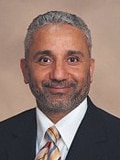
More Mental Health Articles
Grinding Troubles With Your Teeth
If you find yourself constantly experiencing restless sleep, followed by a headache or a sore jaw when you wake up, you may be surprised to discover that it may be caused by nighttime bruxism more commonly known as teeth grinding.
Teeth grinding affects a great number of people unknowingly, as it usually occurs during sleep. It is the clenching together of your jaw accompanied by the grinding of the upper and lower sets of teeth. Unless your grinding is keeping someone else up, you may not even be aware that youre doing it until the telltale effects show on your teeth. Left untreated, it could lead to painful, sensitive or loose teeth, or teeth that are literally worn down, leaving damaged surfaces. It can result in a tight or sore jaw and can also manifest itself as a headache, earache or neck pain. The high pressure from bruxism can even fracture teeth and crack fillings.
The muscles used to chew food are the same ones involved in bruxism, but unlike the regular conscious effort of grinding food to eat, subconscious teeth grinding while we sleep can result in a biting force of up to six times greater than the pressure exerted during waking hours. This added pressure can consequently lead to damage to the temporomandibular joint, which is the “hinge” that connects the lower jaw to the skull, allowing us to talk, yawn and chew and swallow our food. Temporomandibular disorders affect over 10 million North Americans and are commonly identified after hearing a frequent clicking or popping noise in your jaw.
Stress and anxiety are major causes of bruxism; an abnormal bite or crooked or missing teeth are others. If your grinding is due to physical problems with your teeth, we may treat your bruxism by removing the high spots on the problem teeth. In more serious cases, we may need to reshape or reconstruct the biting surfaces of your problem teeth with crowns or inlays. Sometimes, however, we may be able to leave your teeth alone, but intercept the damage that theyre inflicting on each other by fitting you with a plastic mouthguard that you wear at night. This custom-made mouthguard will keep your upper and lower teeth from coming together, making it impossible for you to grind them.
While your dentist will usually be able to detect the telltale signs of bruxism during your regular maintenance visits, please be sure to mention it too, especially if it is causing you discomfort. They can then analyze the cause of and take steps to fix or diminish the problem and help you get a good nights sleep.
Other Articles You May Find of Interest...
- Embracing Healing: Navigating the Emotional and Physical Journey of Mastectomy Recovery
- Understanding the Role of Support Groups in Personal Development
- Ways To Check On a ‘Mama’ In Your Life
- How to get rid of stress
- The Impact Of Mental Illness
- Healthy Mind In a Healthy Body
- 10 Summer Bucket List Ideas For 2024

















